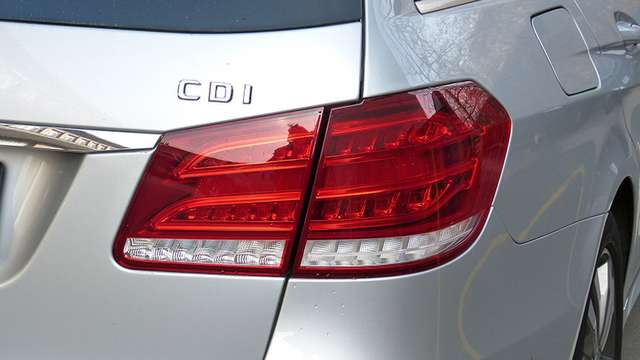- lights
Why do brake lights fail?

Updated 9 Oct 2019
Michael Jacobson

You’re a safe driver who keeps your car serviced, cleaned, insured, registered and, most importantly, disables the music channels favoured by your children because, let's be honest, the music they like is dreadful.
Isn’t it great when a driving plan comes together?
Then a week or so later, sweet nostalgia turns to utter dejection when a window-face envelope arrives in the post to declare you’ve been pinged for a bung brake light.
Despite the importance of brake lights in enabling safer driving for yourself and your fellow motorists, sometimes it feels like they go out more often than Paris Hilton in the Noughties.
However, this perception is not necessarily accurate because, depending on the age and make of your vehicle, your brake lights might need replacing annually or they may last for yonks.
Either way, that's not too bad when you consider just how often they’re used.
The brake light bulb is mounted inside the taillight assembly and receives electricity through a wired socket.
Every time you press the brake pedal, your brake light comes on – or should – and each time you take your foot off the pedal, the light goes off – or should.
Thanks to AutoGuru, there's no need to be kept in the dark when a brake light problem does occur.
Why did the brake light fail?
There are several possible explanations for brake light failure, with the most common being a blown fuse, a burnt-out bulb or a broken switch.
For example, brake lights are a hot topic thanks to the heat generated through being activated up to hundreds of times during every hour of driving.
This heat can burn through the filament inside the bulb, which means no power coming through, no brake light coming on and potentially an unmarked police spotter taking down your licence plate number.
Other factors are also culprits in brake light failure.
Considering what we said earlier, age can still be a mitigating factor, as can rust, moisture infiltration or other electrical circuitry issues such as a relay that is not properly grounded.
How do I look after my brake lights?
Brake light maintenance is not too taxing, although to paraphrase the old song, it may take two, baby.
With one person in the vehicle to press the brake pedal, the other can stand at the rear and confirm whether the brake lights are doing their thing or if remedial-replacement action is required.
While they're back there, get them to check for cracks and damaged seals in the brake-taillight assembly.
As for more complex maintenance, and only if you're so inclined and capable, you can inspect brake light fuses for corrosion or any collected debris, and give them a clean.
Don’t handle the bulb if it’s hot.
Different vehicles, different parts
Fully functioning brake lights are a legal requirement and, just as there are different types of laws, there are different types of brake light bulbs and fuses.
AutoGuru has a range of articles that can help you with information on brake light type, function, replacement and cost, including for Toyota, Nissan, Volkswagen, Skoda, Mini, Audi and more.
How much does brake light replacement cost?
How much does a fuse replacement cost?
If you need to get your brake light replaced, head over to AutoGuru to book your car in with a trusted, high-quality mechanic.

Written By
Michael Jacobson
Michael Jacobson is an award-winning Queensland-based writer.
His appreciation for motoring began as a young journalist covering racing from Simmons Plains in Tasmania.
Over the years he has interviewed many Australian and international motoring greats.
He has also been driven around Lakeside Raceway at ferocious speed, circumnavigated the Gold Coast Indy circuit at more than 200kmh and managed to squeeze 365,000 kilometres out of a Toyota Starlet.